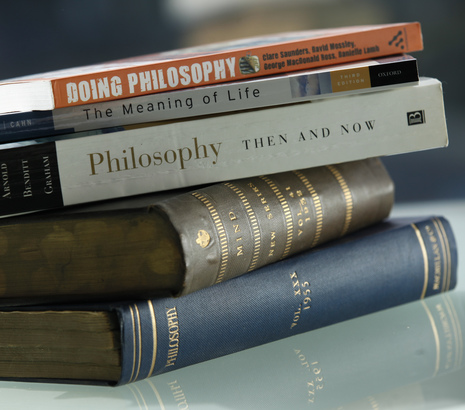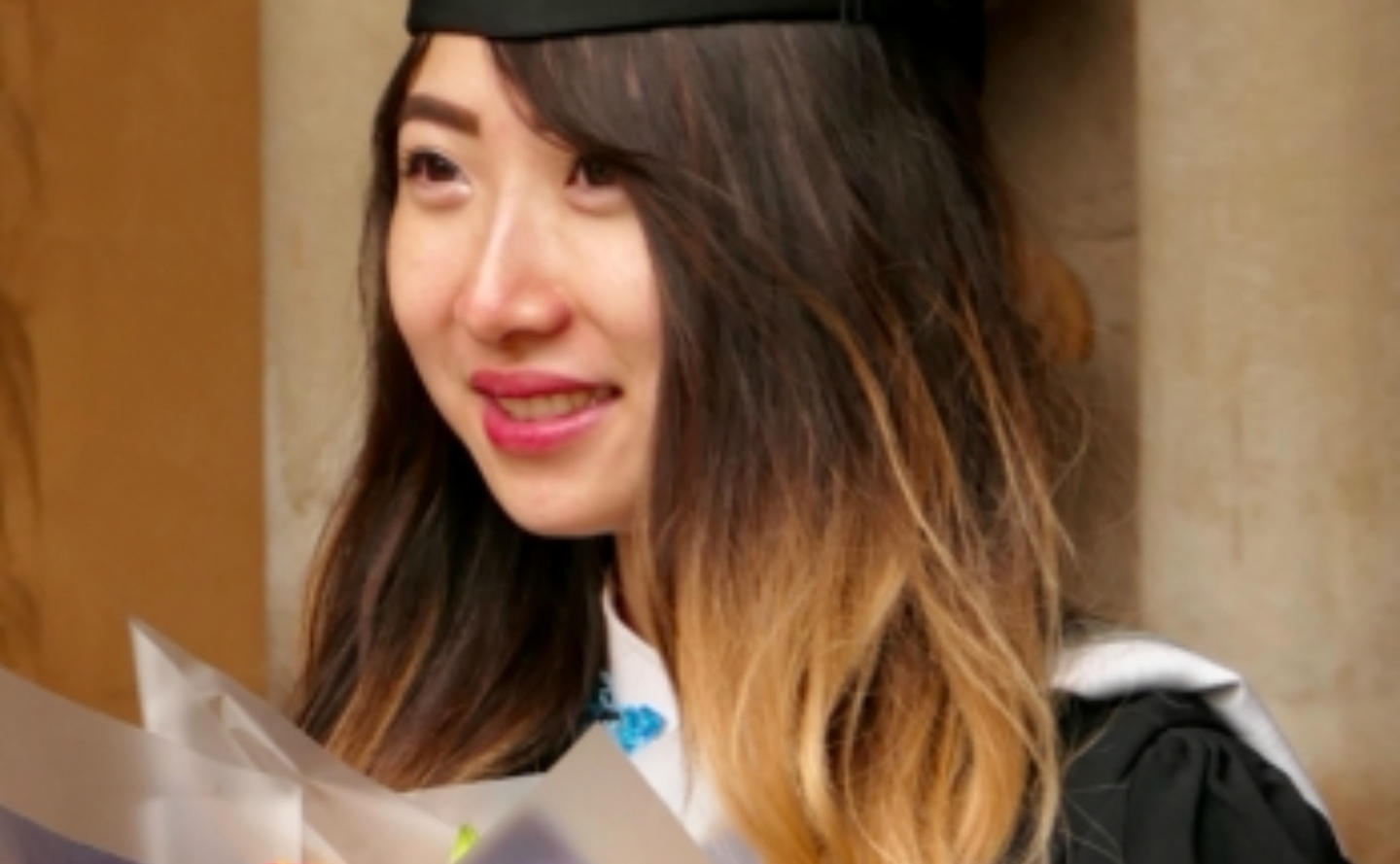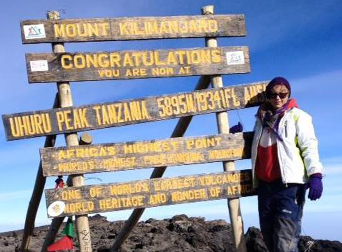BA (Hons) Philosophy and English Language
Key information
-
Typical offer:
Entry requirements -
Fees: See below
Full details -
UCAS code: V5Q1
-
Institute code: H36
-
Study abroad option
-
Work placement option
Find out more
Why choose this course?
- Your Philosophy lecturers are all active researchers
- Optional modules in forensic and clinical linguistics
- Conduct psycholinguistic experiments in our eye tracking suite
We give you:
- A flexible programme of study, allowing you to concentrate on areas you find especially interesting
- An exceptional academic team, conducting internationally renowned research
- Stimulating, innovative courses that allow you to make rewarding connections between two disciplines
- CV-building potential through extra-curricular activities
What's the course about?
What is it for sounds, gestures and marks on paper to have meaning? What are the various uses to which we can put language, and how does it manage to have the effects it has? How do we learn language? And how does the language we use reflect society, the nature of our thoughts, and what we take reality to be like?
Our BA Philosophy and English Language degree allows you to examine the nature of language, through two distinct approaches. You’ll develop a range of skills in analysing the structure of the English language and how it is used in a variety of situations, while exploring and challenging the assumptions about the nature of language, its limits and how it functions.
In your first year, alongside core linguistics modules, you’ll learn to think critically by examining how language may be used – and misused – in reasoning and persuasion. You’ll also study social and political philosophy, covering topics such as freedom of speech, and examine the nature of mind and reality.
All our philosophy lecturers are active researchers, so you’ll share the excitement of doing original work in a supportive and highly-rated academic community. Our English language lecturers are research-active academics working in cutting-edge areas such as language and gender, formulaic language, corpus studies, bilingualism, bilingual processing and codeswitching.
Core modules in your second year focus on English grammar and the sounds of English. You can explore theories of how and why language developed and study language-related real-life problems such as plagiarism and crime investigation in forensic linguistics. In Philosophy, you may explore a wide variety of topics, including the option to learn some languages of logic.
Work placement/study abroad option: Between your second and final year, you’ll have the option to study abroad or do a work placement for up to a year. Not only will this give you an amazing experience to talk about but will also give your CV a boost. If you’d rather go straight to your final year, that’s absolutely fine too.
One final-year option is corpus studies in English language, which will develop your research skills through your use of Sketch Engine, a text analysis tool that allows you to search vast samples of language, or corpora. In Philosophy, there is the option to study more advanced contemporary themes and theories in the philosophy of language, and also to take a module which focuses in particular on Ludwig Wittgenstein’s influential work on the nature of language.
Your main campus is College Lane
This is where the creative arts, science and health-related subjects are based. This means you’ll share the campus with future nurses, scientists, artists and more. You can use the common rooms to relax with friends, work out in the 24-hour gym or have a drink in our on-campus pub or cafes. We also have restaurants for you to eat in or grab something on the go. Our Learning Resources Centres are open 24/7, which means you can study whenever suits you best. Want to pop over to the other campus? You can take the free shuttle bus or walk there in just 15 minutes.
What will I study?
Philosophy students benefit from being part of a lively and active academic community. You’ll learn through formal courses and extracurricular seminars, while our small group teaching helps you to find your feet in the academic environment. There are plenty of opportunities to discuss critical issues with staff and fellow students, including an optional residential weekend each year.
English Language students benefit from being part of a supportive, research-active academic community. From tutorials and group work to psycholinguistic experiments including eye-tracking, we use a range of engaging, student-centred teaching methods to help you work confidently and creatively. You’ll dive into real-life data, get involved in research and learn from guest experts. You’ll have the opportunity to get involved in activities that will complement your studies, such as working for student media channels. Not only do these enhance your experience, they also make for a more impressive CV.
'I certainly developed professionalism and employability through studying Philosophy, primarily through the methods of rational and logical problem solving. I acquired a skill that is useful in whatever field one works in. However, it is enterprise that I most notably improved on while at Herts. I had never really considered starting a businesses or working for myself, but while studying Philosophy (particularly my Masters by Research and my undergraduate dissertation) I realised I was learning self-management and combining this with my new proficiency at problem solving sent me down a new path. Since leaving Herts I have set up multiple small business which are growing healthily. This individuality has really helped me find out what I want to do in life.'
Check out our student blogs

Student Blogs
Kailan - Week at a glance
Weekly schedule blog post
At the beginning of my week, I make a to-do list of all the things that I need to do on top of my studies. After that, I begin with an hour each day at the state-of-the-art gym and swimming pool on the de Havilland campus where my classes are. I then get showered; have breakfast, pack my bag, and walk to my classes. I’m a visual learner, so I focus on just listening to the lecturer, and engaging with the content as much as possible; especially if I am in a seminar. I re-watch the lectures and seminars on Canvas (our online learning portal), as I learn best from visual/audio resources.
I love that at the University, you get the choice to study in a way that suits you. There is absolutely no pressure in sticking to certain means, and you can (to a reasonable degree), build a studying pattern that suits you. I usually have between eight and 13 hours of classes a week (depending on the semester), and I study Politics, International Relations, and Philosophy.
For me, the lectures and seminars are my best resource; and the information and concepts usually make complete sense to me. I struggle to read for long periods of time, so thanks to the academic English resources available for students; I was able to learn ways to read in a way that suits my style of learning. This allowed me to look into the recommended reading, and explore the extra resources given to me; while not overloading myself with information that Is ultimately unimportant (relatively speaking).
In my course (which is a joint honours), coursework makes up around 40-50% of the classification in the first year. Exams obviously make up the rest. What I was surprised to find out upon enrolling, is that once you get into a rhythm with coursework, and make template documents (which include things like an empty bibliography and a title), they are relatively straight forward. I feel that the overwhelming feeling that comes from coursework and exams, comes when you don’t feel like you have access to the resources that teach you how to write assignments efficiently - the University makes these resources available to you; you just have to reach out for them. If you have a professional and academically beautiful document; you will be more inclined to write in a similarly professional way.
Fundamentally, though, assignments and exams are super easy and fun, as long as you’re prepared (in my case having a template document, and understanding how to reference was the key), as-well-as interested in the topic that you’re studying. If you love the topic and know how to build an essay; you’ll blast through your assignments!
Going back to my typical week… There are lots to do on both campuses; especially in the first semester; with freshers fairs and endless other things going on too. Wednesday’s and Friday’s I usually go out to the Forum (the club on campus) with my flatmates. As long as you study hard, and understand the content in your own way; you will be able to afford to go out as much as you want!
The bottom line is: Work hard and play hard; prepare in advance for your assignments, and that way they’ll be super easy, and study a subject that you are passionate about!

Student Blogs
Kailan - Things you should know
Things you need to know before studying PiR at UH
Before you choose the study at the University of Hertfordshire, you need to ask yourself a few questions. What do you want out of University? If the answer is more than a degree, then Herts is the place for you. If you want to make international friends and expand your network, Herts is the place for you. If you want to have access to State of the art resources and world-class staff, then the University of Hertfordshire is for you.
So you’ve checked all of the boxes, and you’re considering Herts. That’s great! You’re planning to study Politics and International Relations; that’s great! What should you know before making your decision? Let me tell you…
- The staff are amazing and go a million steps past what is required of them to help your experience and understanding of the content. HOWEVER, they can only do that if you reach out and discuss your issue or query with them. They’re extremely attentive, but the UH staff are not trained in telepathy, unfortunately (maybe in another decade or so).
- You can, and should, make a study plan that suits you. The school (in my personal opinion), trains you to study in a very specific and rigid way. If that works for you; then great; proceed as you are. If you struggle to learn from the ‘traditional means’, and hate the idea of reading every word in a 15-page article in order to find one piece of information to support your argument; don’t. The staff and the department can recognise that different students learn differently. That is why there are resources made available to you to find a system that allows University to be straight forward for you. Tip: Check out the Academic English hub on campus, and discuss this with them.
- You have the option to study a language, as-well-as study abroad for free! Studying a language as an elective (an extra module) is free; and you have the choice from multiple languages, at multiples levels; even if you’ve never spoken a word before.
- If you wish to study abroad; there are lots of resources available to you; you can find a placement abroad within Politics and IR, and the staff will help you learn how to apply; do well in interviews, and the study abroad office can give you more specific advice on planning your trip etc.
- University is a place for ideas; if you have an idea that you think is against the norm; the staff will ALWAYS welcome it. There are no stupid questions; if you’re thinking it, others probably will be too, and it will open up the discussion anyway!
- Take advantage of any research opportunities presented to you by the department; they are announcing them because they really believe that it is a lucrative opportunity for students; don’t assume that it’s not for you - explore ALL opportunities.
Fundamentally though, have fun; University is not all about the degree; in many ways, the network that you build and the life that you develop during your time at UH is much more important than having a first on your transcript. The beauty of the system is that you can have both, as long as you reach out first!

Student Blogs
Kailan - Why I love PIR
What I love most about my course
I love the department. The staff go a million steps past just teaching you the assigned content. They support your ideas and interests; your professional growth, and are constantly checking to ensure that each and every student understands in a thorough, academically holistic way; the concerned content. Each and every staff member in the department is a mentor and extremely patient and attentive to a student’s pace.
You can approach professors about anything; from personal issues affecting your workflow (and asking for them to help you one to one to understand the content during their office hours) to asking them for advice concerning your professional aspirations (such as internships). I have contacted members of staff for references to internships and scholarship applications; of which they’re more than happy to help out with.
The way that the department frames your University journey during induction is important; it started with one of the subjects heads explaining to us that this is beginning of our professional lives; and that in our course, we are not students who are hierarchically lectured to by teachers; we are colleagues, who are exploring the academic discipline that we mutually take interest in.
Starting the course by showing students that this is a professional journey, and NOT a commodity, really sets the tone for the course. I feel is allows students to feel more comfortable with reaching out for help; because asking for help is a logistical thing, rather than something to be embarrassed about.
When I say that the staff go the extra mile; I am not kidding. It’s not just the outstanding attentiveness and resources put into your experience that they finetune, they also are mentors. I have asked for career advice concerning internships, and was offered mock interviews, and given advice on typical questions given in interviews within the Political field; of which the interviewer asked!
When I got accepted into a scholarship to delegate at the General Assembly, the staff members helped me out with resources on how to succeed in this venture. The staff members have offered me contacts for research and professional opportunities.
If you have any questions, or any interest, or anything you wish to clarify about anything at all; all you have to do is ask. IF you don’t ask, you don’t get. IF you do ask, you are met with mentorship and invaluable advice that will inevitably solve your issue, or help you to excel.
Study at Herts!

Alumni Stories
Jenny Vu
Meet Jenny Vu who gained valuable transferable skills for her future career. She is currently a Teaching Assistant at a secondary school.
Read more stories BA (Hons) History and Philosophy| Current job role | Teaching Assistant |
|---|---|
| Year of graduation | 2018 |
| Course of study | BA (Hons) History and Philosophy with Study Abroad Year |

University life and experience
Throughout her degree, Jenny learnt a considerable amount of transferable skills and world knowledge to enable to her succeed in her career as a Teaching Assistant. She says that the most useful skills she learnt are how to analyse and correct grammar which have proved invaluable when teaching her students.
Jenny initially chose the University of Hertfordshire as it ‘was close to home but still relatively far enough to move out and learn to live independently.’ She explains how her independence grew as she used her degree to explore the World by taking the opportunity to study abroad for a year. She says, ‘My standout memory from my time at the University was studying abroad for a year. It was probably the best year of my life.’
Future aspirations
Jenny’s study abroad year sparked her passion for travel and in the future, she plans to teach in Asia. However, she says, if she does return to the UK, she would like to teach and promote higher education to young students to inspire future generations and showcase their potential.

Alumni Stories
Laura de Haan
Meet Laura de Haan whose Humanities degree has taken her on a journey of personal discovery. She now works as an Education Liaison Coordinator at the University of Hertfordshire.
Read more stories BA (Hons) English Language and Linguistics| Current job role | Education Liaison Coordinator |
|---|---|
| Year of graduation | 2018 |
| Course of study | BA(Hons) English Language and Communication with Journalism |

University experience
Studying Journalism far exceeded Laura’s expectations. She felt privileged to interview inspiring people and tell their story. Laura was also interested to learn of the legal and ethical issues surrounding Journalism.
Laura chose to study a specialist module in Forensic Phonetics and Linguistics and feels lucky to have been taught by one of the few experts in the country. She was fascinated to learn psycho-linguistics (how language works in the brain) which evolved into a broader interest in psychology. The flexibility of her degree programme and the overwhelming support of her lecturers gave Laura the freedom to tailor her assignments. This meant they could align with her growing interests and Laura had the space to explore what she wanted to do in life.
Outside of her studies, Laura immersed herself in the student community, joining as many clubs and societies as she could. One of the highlights was joining the Oral History Team. Through this, Laura interviewed relatives of British expats and supported a refugee project, which she found to be a valuable experience. Laura was invited to observe Natasha Kaplinsky interview a Holocaust survivor and was also invited to the Holocaust Memorial Day held at No. 10 Downing Street.
The University offers an inclusive and proactive community which inspired Laura to join a fundraising drive to raise money for Hope for Children, an international children’s charity. Laura initially felt nervous, but overcame a lack of self-confidence to raise an astonishing £4,990. Her gallant fundraising efforts led her to climb Mt Kilimanjaro, Everest Base Camp and Machu Picchu. Laura later won a Dean’s Award for her fundraising and community work.
In her final year, Laura joined the Student Ambassador programme. She quickly developed a natural presentation style, delivering talks about student life to prospective students and their families. Laura achieved recognition for her work, winning ‘Student Ambassador of the Year’ in 2018.
Laura has always felt at home in our community and when she graduated, she wasn’t quite ready to leave Herts behind. Instead, she chose to immerse herself in postgraduate studies, joining the MSc in Psychology. With the end of this now fast approaching, Laura has already gained a place on the MSc by Research in Clinical Psychology, where she will continue to explore her passion.
Career progression
Laura’s journey through higher education shows how it is possible to study and work at the same time. During her second degree with us, she gained employment as one of our Education Liaison Coordinators. This involves visiting schools and colleges, talking to students about going to university. Laura also works as a visiting lecturer for the University, teaching the history of the English language.
Alongside this Laura also works as a mental health workshop coordinator with Our Time, an NGO which supports children and young people affected by parental mental illness. In addition, she works as a support worker for Look Ahead Care and Support, helping people with learning disabilities and behavioural issues to connect with society. Laura will shortly begin a new chapter in her career, as she joins Yateley School as an A-Level Psychology and WJEC Criminology teacher.

